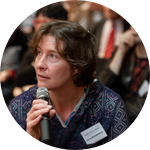104
0
0
Like?
Please wait...
About This Project
Thirty years of data suggest that non-conscious processing correlates with future events. We have used this idea to make money on the stock market, but our past results could be due to chance. In this project we examine three approaches that could produce reliable guesses about the market shifts over 120 days. We are interested in shedding light on the underlying mechanisms and opening the scientific conversation about the psychology and physics of time. Proceeds go to the Seva Foundation.

Browse Other Projects on Experiment
Related Projects
Can our unconscious minds predict the stock market?
Thirty years of data suggest that non-conscious processing correlates with future events. We have used this...

